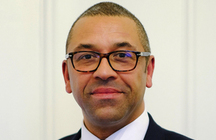William Hague – 2013 Speech on Scottish Independence
Below is the text of the speech made by the Foreign Secretary, William Hague, during a visit to Edinburgh on 20th June 2013.
After three years as Foreign Secretary and visits to more than 70 countries, I am in no doubt whatsoever that we are safer together, stronger together and that we achieve more in the world together as the United Kingdom.
And in this speech today, I want to describe the foreign policy issues that the Scottish people will need to carefully consider, given that the one certainty of a vote for independence is that it wouldn’t be business as usual: it would be a vote for substantial change.
Travelling from Afghanistan to Brazil, and from Canada to Australia, I encounter bafflement that anyone would try to break up a union that has been so resilient, so successful and so admired as ours.
When outsiders look at the United Kingdom, they see one of the world’s most successful examples of stable democratic government, economic development and diplomatic influence.
They speak in awe of our institutions, our civil service, and our legal systems. The admire the richness and diversity of our culture, language, history, sport and traditions, and indeed we were ranked number one in the world for ‘soft’ power in one recent global survey.
It is of course up to people in Scotland to decide in 2014 which way they want to go. It is my sincerest hope that Scotland votes to remain in the United Kingdom. But I am not here to make dire predictions or to issue dark warnings. However I do believe that this decision involves a clear choice in foreign policy:
On the one hand, is continued membership of the world’s sixth largest economy, represented at the G7, G8 and G20, with a permanent seat of the UN Security Council, and an established, influential and growing diplomatic network that is increasingly focused on trade and building up links with the Commonwealth and the fastest-growing parts of the world economy.
On the other is an uncertain future where Scots would have to face the inconvenience and tremendous burden of having to start again in world affairs, with a different passport for future generations, without that global network and enviable diplomatic position in the world, and without automatic entry to NATO and the EU.
The G8 Summit in Northern Ireland this week is tangible proof that the United Kingdom’s seat at the top table of international decision-making matters. We have a voice on the major issues of the day: from international trade to human rights and counter-terrorism.
The UK is not a passive observer. We are active players. We are at the heart of global events. We help shape the world we live in, and our voice matters and it is listened to.
Our Embassies promote the whole of the UK – that means Scottish architectural companies, Scottish environmentally-friendly products, Scottish agricultural equipment and Scottish food, in some surprising destinations, such as the 1,000 tonnes of Scottish salmon imported into Lebanon each year with the active support of our Embassy.
And when adventure turns to misadventure for UK nationals overseas – when there is a terrorist attack or a natural disaster, when criminals strike or British children are forced into marriage overseas – that is when we all feel the benefits of being able to turn to one of our missions in 267 posts in 154 countries and twelve territories worldwide.
As part of the United Kingdom Scotland derives – and will continue to derive – many benefits from being part of this global diplomatic network, instead of having to rely on inevitably fewer, smaller Embassies which would take time and resources to establish.
The United Kingdom is one of the few nations in the world with the global reach and influence that means that we can ‘turn the dial’ on major global issues, as we have done in recent years in Somalia.
For foreign policy is not just about dealing with the crises of the moment, it is about improving the condition of humanity, something we are engaged in together as a global player, and we would be less able to do that if we were not the UK.
In all these areas the UK should stay together because we achieve more together.
The cost of creating new institutions would place an enormous burden on the Scottish taxpayer; it would also take years to develop the infrastructure and qualified personnel that are needed to deal effectively with the array of threats that we all face. And Scotland would lose the benefits that come from having some of the most capable and professional armed forces and intelligence services in the world. Within the United Kingdom we have one set of intelligence services and one set of armed forces, benefitting from significant economies of scale and years of institutional development now provide a far higher level of security for the Scottish people.
So not only is Scotland safer in the UK, but the UK is one of the world’s leading nations in human rights, development and trade because we stand strongly together: a force for good in the world, with the ability to protect the interests of our citizens at home and abroad.


